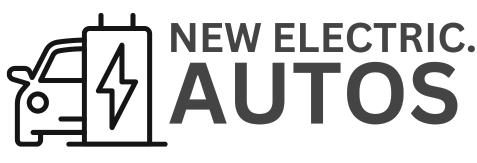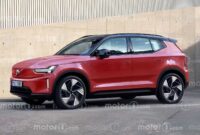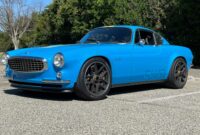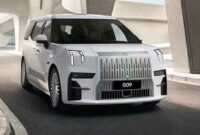As more and more EVs are introduced, some of them have gone through the dreaded moose test. Designed to check whether a car can safely maneuver out of a sudden obstacle (and return to the track afterwards), electric vehicles typically excel in moose tests. Even higher-end crossover EVs generally perform well – except for the Volvo C40 Recharge that the guys from YouTube recently tested km77.com.
Introduced last year for the 2022 model year, the Volvo C40 Recharge is a coupe version of the XC40 Recharge. Variant tested by km77.com complete with Pirelli PZero Elect tires. The car is in Normal mode for the duration of the test.

44 Photo
At a benchmark speed of 77 kilometers per hour (47.8 miles per hour), the C40 Recharge failed, with testers noting that it had too much understeer. The reaction of the car was said to be normal, although it was said the tires and the temperature of the day could have been a factor in the failure of the experiment. However, the lack of reaction from the car’s ESC was also noted to be a factor.
Best effort was made at 70 km/h (43.5 mph), which is a bit low compared to other cars in its class.
In comparison, the Tesla Model Y excelled in previous moose tests, completing the maneuver at 83 km/h (52 mph). Other EV crossovers like the VW ID.4 and Mazda MX-30 have also fared well but not better than what Tesla’s EV crossovers have achieved so far. Meanwhile, the Kia EV6 has also just completed a test with a speed of 78 km/h (48.5 mph).
This suggests that the low center of gravity is not the only factor for the vehicle to pass the dreaded deer test. Electronic assists also affect results but more importantly, the traction the tires use.




